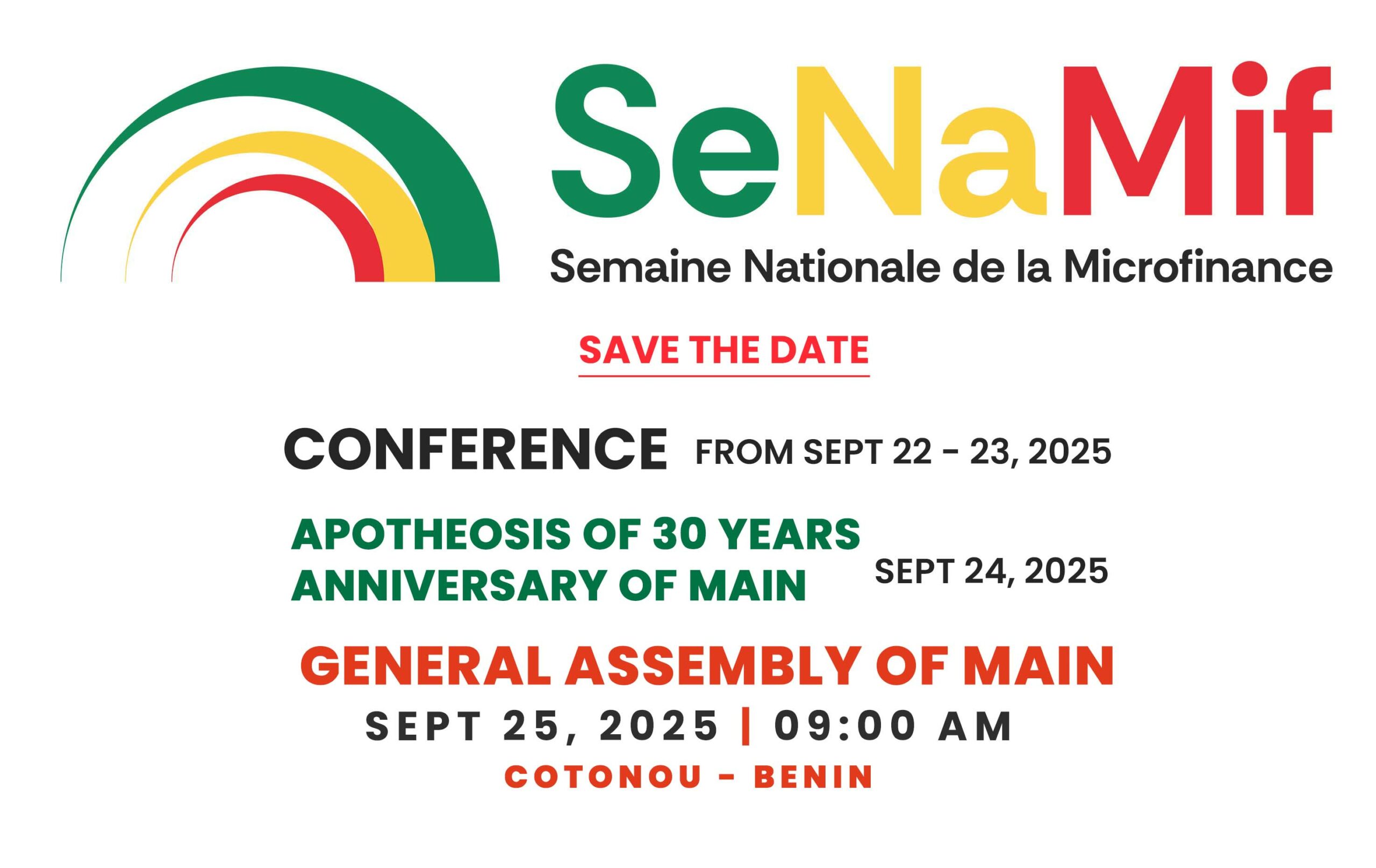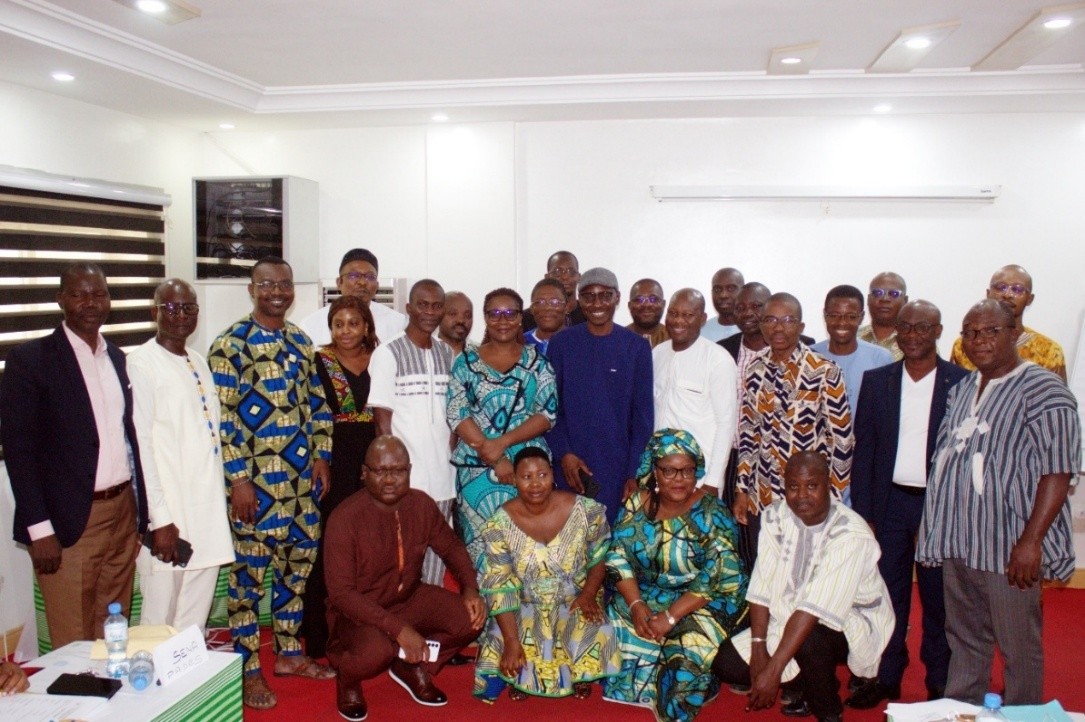

WOMEN’S ENTREPRENEURSHIP AND THE ROLE OF MICROFINANCE INSTITUTIONS IN AFRICA
Entrepreneurship is a key lever for economic development, enabling job creation, stimulating innovation and generating added value[1]. In Africa, this dynamic is particularly driven by women, who play a central role in the continent’s economy. According to recent studies, 24% of African women aged 18 to 64 have started a business, the highest rate in the world, ahead of Latin America (17%), North America (12%) and Europe/Central Asia (8%)[2]. This means that one in four working-age women is an entrepreneur. The entrepreneurial vitality of African women, which generates between $150 billion and $200 billion in added value—about 65% of the continent’s wealth—illustrates their resilience in the face of socioeconomic challenges and their essential role in the development of households and communities.
African women entrepreneurs operate predominantly in informal sector, particularly in fields such as retail (sales of food products, clothing, etc.), subsistence farming, agri-food processing, services (hairdressing, sewing, street food), crafts, and increasingly in digital services and technologies, although their access to these remains limited. These activities are often small in size, with low initial capital, and organized on a family or community basis. On the other hand, some create and manage companies processing local products, financial services, digital communication or even educational video games.[3]This sectoral diversity demonstrates their capacity for innovation and adaptation to local needs and opportunities in the African market.[4].
Despite their significant contribution to the economy, African women entrepreneurs face numerous barriers to accessing finance. According to a report by the African Development Bank (AfDB), the financing gap for women-led SMEs in sub-Saharan Africa is estimated at more than $42 billion.[5] The reasons for this exclusion are numerous: lack of formal guarantees, limited credit history, low financial literacy, unfavorable social norms, non-registration of businesses, etc. Added to this is the lack of access to financial education and support networks, as well as heavy family responsibilities that limit their time and mobility. This paradox—a high rate of entrepreneurship coupled with high financial exclusion—hinders the expansion and formalization of women-led businesses.
Microfinance institutions are emerging as key actors in filling this gap left by traditional financial systems. They are designed to provide accessible financial services to low-income populations, without the rigid requirements of the traditional banking system. MFIs offer collateral-free microloans, flexible savings products, basic insurance, and non-financial services such as management training, personalized support, self-confidence building, and support network development. These institutions often adopt community-based approaches, such as solidarity credit groups, which strengthen mutual accountability among members and limit the risk of insolvency.
Women’s entrepreneurship plays a key role in Africa’s economic vitality. Across the continent, women are creating, innovating, and supporting their communities, often in difficult conditions and with limited resources. Microfinance institutions have a real opportunity to support this movement through their actions. By offering more accessible services, tailored training, and remaining attentive to women’s specific needs, they can help create an environment more conducive to their success. It’s not about changing everything, but going further: adapting, testing, and improving what already exists… while thinking about inclusion, proximity, and impact. Encouraging women in their projects means actively participating in more fair, sustainable, and resilient development.
Supporting women means fueling growth, strengthening social stability, and building the continent’s future. Let’s get involved now.
MAIN NETWORK MEMBER MFIS AND GREEN PRODUCTS: TOWARDS MICROFINANCE SERVING THE ECOLOGICAL AND SOCIAL TRANSITION
Green products in the microfinance sector refer to financial services designed to support environmentally friendly activities, such as access to renewable energy, organic farming, sustainable water or waste management, or clean mobility. These products aim to balance economic viability and environmental impact, while improving the living conditions of beneficiaries. Historically, the integration of environmental issues into the offerings of African Microfinance Institutions (MFIs) has been gradual, often at the initiative of pioneering actors or projects supported by international donors. However, with the growing effects of climate change, and in a context of significant social inequalities, the Ecological and Social Transition (EST) is now emerging as an essential strategic direction.
Aware of this issue, the MAIN network (Microfinance African Institutions Network) undertook at the beginning of 2025 an in-depth survey with all of its 141 members, in order to evaluate their commitment on the EST, to identify the challenges encountered, and to structure relevant support. The results reveal a promising dynamic: around 75% of MFIs report having already implemented or are in the process of developing green products. A large majority also express a strong willingness to receive training, design new environmentally responsible offerings, and collaborate with other committed stakeholders.
The fruits of this commitment are visible in the diversity of green products identified: more than 71% of MFIs offering green products provide loans for solar equipment or clean energy solutions, 34% support organic farming initiatives, 16% have developed offers for ecological housing or sustainable domestic equipment, and others are moving towards sectors such as waste management, sanitation, or green mobility. These efforts demonstrate that green microfinance offerings are no longer marginal, but are becoming more structured. Nevertheless, numerous challenges remain: a lack of financial resources, insufficient internal skills, low client awareness, and sometimes an inadequate regulatory framework still hamper the growth of green products.
In this context, MAIN network is fully committed to supporting its members. The demand for support is clear: MFIs want practical training, technical support for product design, risk assessment tools, and easier access to resources or green financing lines. MAIN intends to meet these expectations through concrete actions: implementing capacity-building programs, facilitating peer-to-peer exchanges, and launching pilot projects with the most committed institutions.
It is important to recognize and encourage MFIs that have already taken the initiative to embark on this transition. Their courageous actions, often in the context of limited resources, demonstrate their desire to participate in a more responsible, inclusive, and sustainable microfinance sector. They prove that it is possible to reconcile economic performance, social inclusion, and environmental protection.
In conclusion, green products represent a tremendous opportunity for African MFIs to redefine their mission in response to contemporary challenges. With a support of MAIN network and the mobilization of its partners, green microfinance is poised to play a central role in building a sustainable future on the African continent.
REVIEW OF THE MAIN TRAINING IN LOME: GREEN FINANCE TAKES ROOT IN AFRICAN MICROFINANCE
(Participants and trainer share their impressions of the “Green Non-Financial Products and Services” workshop)
From July 16 to 18, 2025, MAIN organized a strategic training course on green non-financial products and services in Lomé (Togo) for microfinance sector executives. Three days of intensive discussions that raised important awareness and led to concrete initiatives.

In this workshop, several participants were invited to share their views on the training process and the elements that particularly struck them. Here is the feedback from two participants and the trainer:
“”
I must admit that when I received the training theme—green non-financial products and services—I was a little skeptical. I wondered if I would really leave with concrete and useful information. But quite honestly, the teaching methodology used allowed me to understand that the scope of microfinance goes far beyond the conventional financing we usually practice. Today, it is clear to me that climate and environmental issues are not reserved for large banks or international donors. Microfinance can also play an important role in this area, seizing economic opportunities while actively contributing to environmental protection.
What impressed me the most was the conviviality of the exchanges, the mixing of experiences between participants, and above all the practical case studies. These moments were very enriching and allowed us to leave with concrete tools. Today, I can say that we have acquired solid foundations to put in place a global framework aimed at integrating green and climate finance into our activities.
Thank you so much.
.
Overall, the training went very well. There were rich discussions and a lot of experience sharing. The content was relevant, with a good balance between theory and practice. Personally, I already had some knowledge about the ESMS (Environmental and Social Management System), but I didn’t really understand what climate finance or green finance was. These three days allowed me to acquire solid knowledge, and today, I feel better equipped to advise my institution and support it towards a green financing strategy.
Among the five modules covered, it was the last one that left the most impression on me. It focused on the operational mechanisms and instruments of green finance, and that is exactly what we were missing. We wanted to raise green funds, but we didn’t know the steps to follow or the accreditation process. This module enlightened us on the path to take, the access conditions and the available opportunities
Thanks.
Trainer: Expert in sustainable finance
First of all, I would like to thank MAIN network for giving me the opportunity to lead this training and to discuss with the participants a topic that has become essential today: the development of green non-financial products and services.
This theme, as you know, is set to transform the governance models of financial institutions, whether banks or microfinance institutions. The objective of these three days was to:
Overall, the training was very enriching, with active participation and real commitment from the participants.
What struck me most was the level of engagement and genuine interest in the topic. There was a real awareness of the need to integrate environmental dimensions into MFI activities. Several participants expressed their desire to strengthen their skills on the subject, or even to go further by developing green products or setting up projects to submit to climate funds. Some even mentioned their ambition to engage in an accreditation process with the Green Climate Fund or the Adaptation Fund, in order to directly mobilize resources to finance impactful initiatives. In summary, it was a very fruitful training, rich in exchanges and learning, which allowed everyone to benefit from the shared experiences.
Thank you so much.
In conclusion, this training program has planted the seeds for resilient microfinance that is committed to climate action. Testimonials confirm that integrating green issues is no longer an option, but a path forward for the sector. MAIN will support these pioneers in bringing their projects to a successful completion, thereby supporting the ecological transition of local economies.
Let us work together for a sustainable future.
Upcoming Events
[1] https://spiegato.com/fr/quelle-est-la-relation-entre-lentrepreneuriat-et-le-developpement-economique
[2] https://femmesdumaroc.com/archives/les-femmes-le-moteur-de-leconomie-africaine
[3]https://www.financialafrik.com/2019/11/19/afrique-50-femmes-entrepreneures-qui-montrent-que-cest-possible/
[4] https://www.rolandberger.com/publications/publication_pdf/Etude-RB_WIA_Accelerer_la_dynamique_entrepreneuriale_des_femmes_en_Afrique.pdf
[5]https://www.afdb.org/fr/themes-et-secteurs/initiatives-et-partenariats/initiative-pour-le-financing-en-faveur-des-femmes-en-afrique-afawa